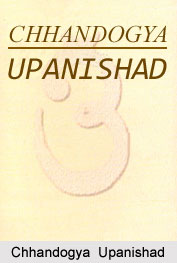 Chandogya Upanishad, one of the oldest Upanishad has been written during the Vedic Brahmana period. Chandogya Upanishad is associated with Sama Veda. Chandogya Upanishad is the part of Chandogya Brahmana that contains ten chapters. The 8th Khanda of Chapter Seven of Chandogya Upanishad states about the strength as Brahman. Narada approached Sanatkumara to know about the real Self or the Supreme Brahman. Narada wished to know what was greater than knowledge or understanding. Sanatkumara replied that strength is greater than knowledge or understanding. The power of a single can make a hundred men of knowledge tremble. When a person becomes powerful he rises; he can then attend to his tutors. He then becomes their intimate companion as a pupil and listens to their instruction and thus, develops as a well taught, well informed and intelligent person. The earth is supported by power and strength; the ethereal space, the heaven, mountains, men and gods, beasts and birds, grasses and trees, wild animals, as also worms, insects, ants and even the world, are supported by power and strength. One must thus, meditate on power and strength as Brahman. He who knows this and realises it becomes free and reaches as far as power and strength reaches.
Chandogya Upanishad, one of the oldest Upanishad has been written during the Vedic Brahmana period. Chandogya Upanishad is associated with Sama Veda. Chandogya Upanishad is the part of Chandogya Brahmana that contains ten chapters. The 8th Khanda of Chapter Seven of Chandogya Upanishad states about the strength as Brahman. Narada approached Sanatkumara to know about the real Self or the Supreme Brahman. Narada wished to know what was greater than knowledge or understanding. Sanatkumara replied that strength is greater than knowledge or understanding. The power of a single can make a hundred men of knowledge tremble. When a person becomes powerful he rises; he can then attend to his tutors. He then becomes their intimate companion as a pupil and listens to their instruction and thus, develops as a well taught, well informed and intelligent person. The earth is supported by power and strength; the ethereal space, the heaven, mountains, men and gods, beasts and birds, grasses and trees, wild animals, as also worms, insects, ants and even the world, are supported by power and strength. One must thus, meditate on power and strength as Brahman. He who knows this and realises it becomes free and reaches as far as power and strength reaches.
This article is a stub. You can enrich by adding more information to it. Send your Write Up to [email protected]












